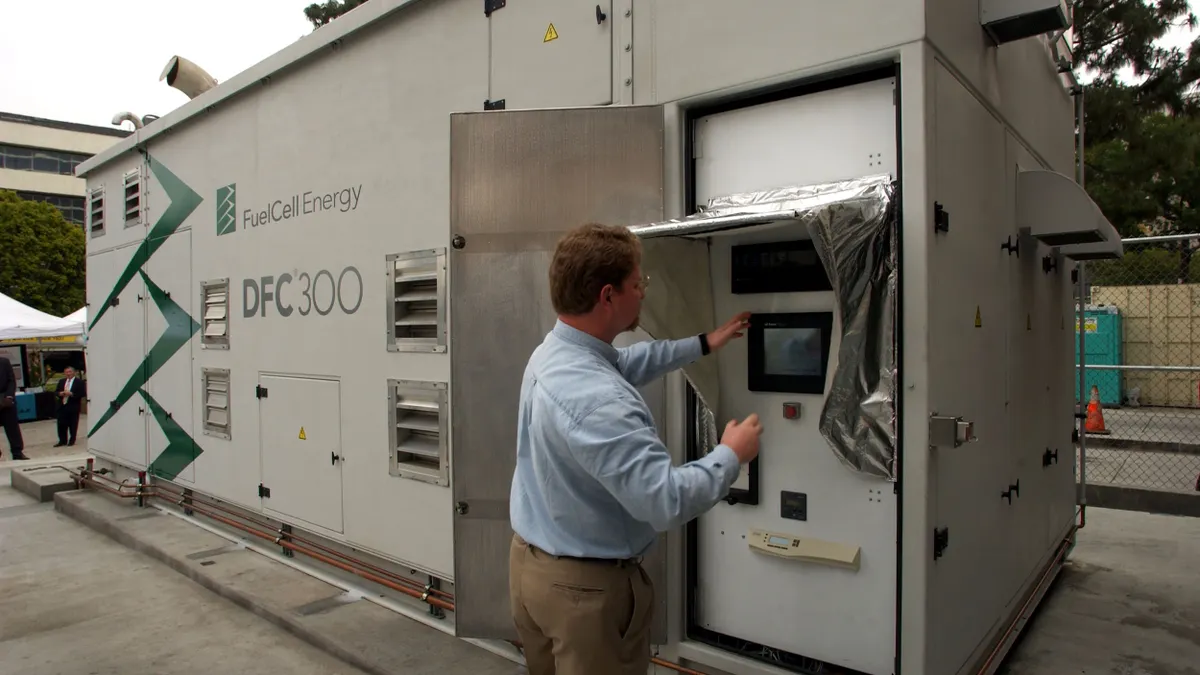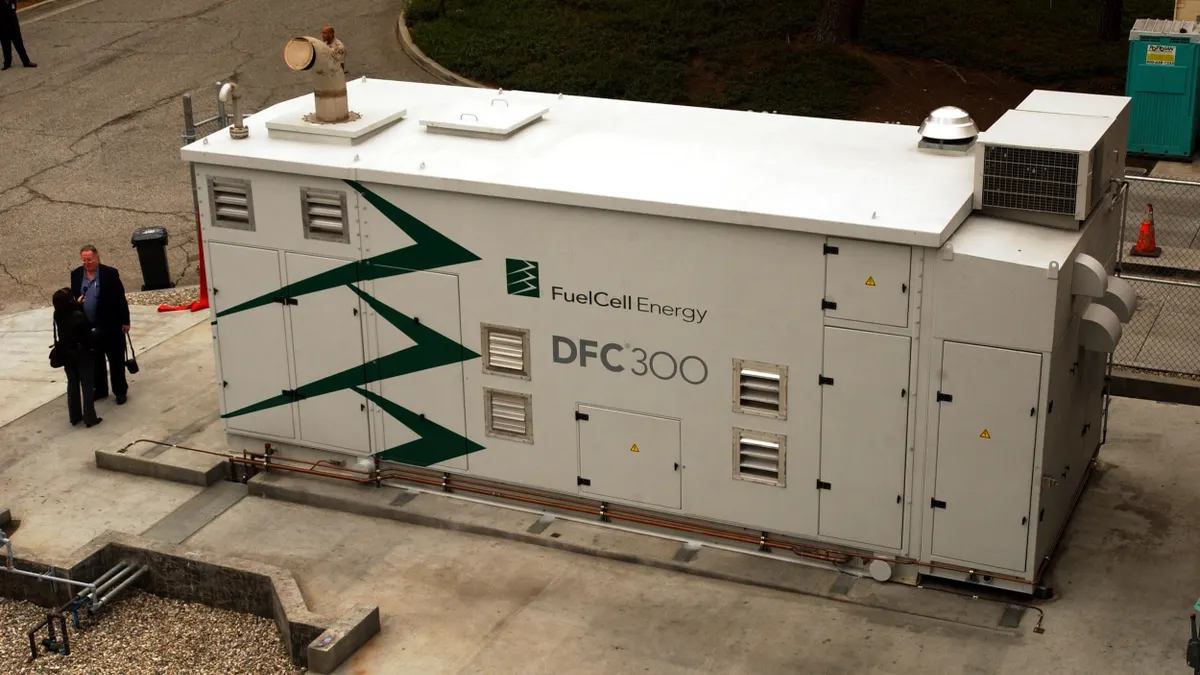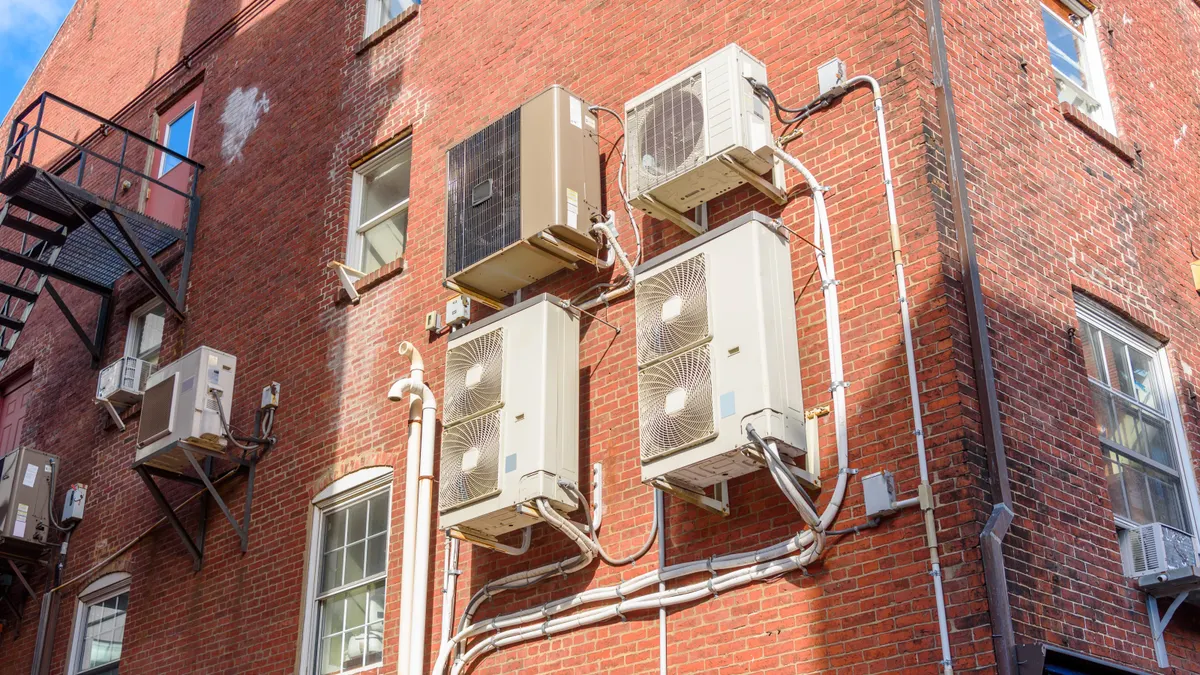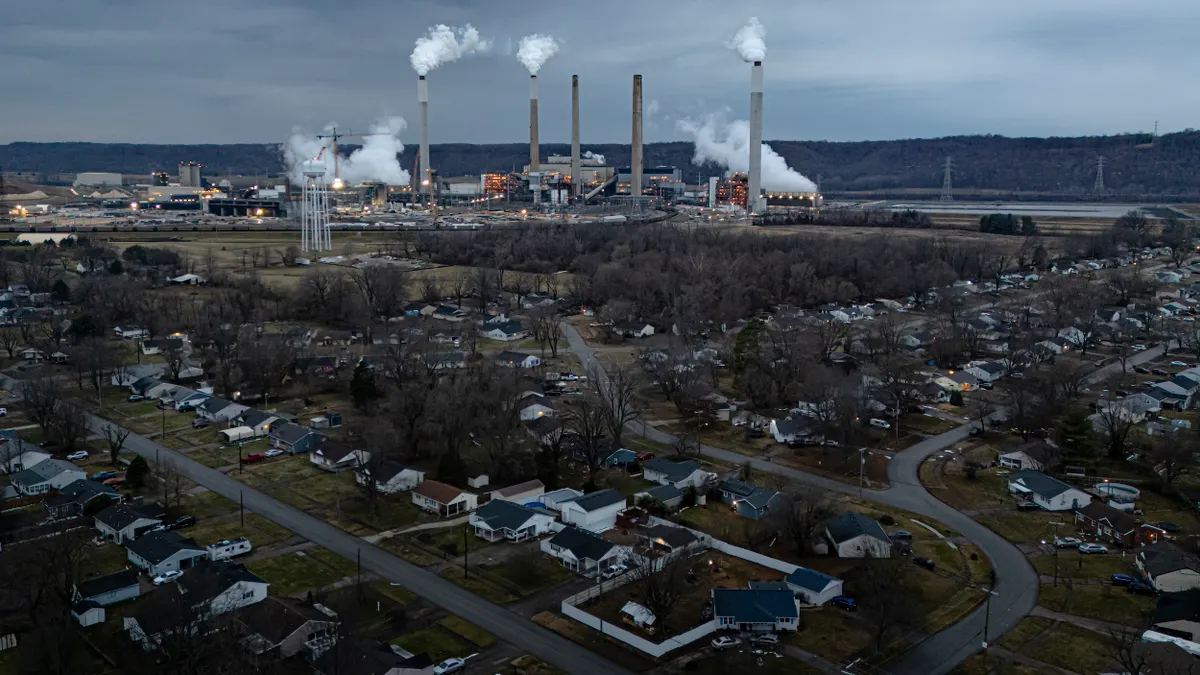The U.S. Department of Energy’s termination of nearly $7.6 billion in funding for 223 clean energy projects is a setback for power grid reliability, methane reduction, building decarbonization and other initiatives, according to sources close to the projects and a list released by Democrats on the U.S. House Appropriations Committee.
“These are projects that have been underway for quite some time, and it will mean people losing jobs, work stoppages and layoffs. Those will be the immediate impacts,” said Zealan Hoover, a former senior adviser to the Environmental Protection Agency, now a principal at Torrey Growth & Income Advisers. “The longer-term impacts will be a less dynamic and competitive electric power sector, higher energy costs and a less reliable grid.”
Some of the biggest dollar amounts terminated are for hydrogen hubs in California and the Pacific Northwest, Hoover said, but other terminations were “out of the Grid Deployment Office to electric power utilities for projects that strengthen local grid reliability.”
U.S. Office of Management and Budget Director Russ Vought posted on social media Wednesday that “nearly $8 billion in Green New Scam funding to fuel the Left’s climate agenda is being canceled.” Vought named 16 states that will be affected: California, Colorado, Connecticut, Delaware, Hawaii, Illinois, Maryland, Massachusetts, Minnesota, New Hampshire, New Jersey, New Mexico, New York, Oregon, Vermont and Washington.
In Colorado, DOE is canceling more than 30 grants totaling more than $500 million for projects including oil and gas methane reduction, investments in grid resilience and support for utility programs in low-income communities, a spokesperson for the Colorado Energy Office said. The Colorado Energy Office itself is losing two $2.5 million grants for building energy codes and performance standards that support decarbonization, the spokesperson said.
The DOE’s list of terminated projects “specifically targets states where a majority of Americans cast their votes in favor of the Democratic nominee for President,” the Colorado Energy Office said in a statement. The terminations “will balloon energy costs, threaten grid reliability, increase pollution, and create instability in our business community,” it said.
While the terminated projects are all headquartered in states that voted for former Vice President Kamala Harris in the 2024 presidential election, Hoover said many of the projects span multiple states, including those on the other side of the political divide. For example, the Pacific Northwest Regional Hydrogen Hub, which is slated to lose up to $1 billion in federal funding, is headquartered in Washington state but “spans a number of states in the Northwest, including a node in Montana,” he said.
“As a former government official who oversaw grant competitions, the sheer thought of making termination decisions on the basis of partisan politics is appalling,” Hoover said.
U.S. House Appropriations Committee ranking member Rep. Rosa DeLauro, D-Conn., and Energy and Water Appropriations Subcommittee ranking member Rep. Marcy Kaptur, D-Ohio, on Thursday released a breakdown of the terminated projects by congressional district showing that 108 are headquartered in districts represented by Democrats and 28 in districts represented by Republicans.
In Illinois, which looks to lose at least $280 million for projects that help prevent methane leaks, enhance grid resiliency and reduce emissions, a spokesperson for Gov. JB Pritzker said in an email that the Trump administration’s “actions to block energy and grid-related projects puts politics ahead of America’s energy security.”
“Energy investments fuel our economy, support workers, and keep homes, schools, and businesses running smoothly, yet blocking them for political reasons weakens our energy systems and burdens working families,” the spokesperson said.
The Alliance for Renewable Clean Hydrogen Energy Systems, a hydrogen hub based in California, will lose $1.2 billion in federal funding. A spokesperson for the Los Angeles Department of Water and Power, a key participant in the ARCHES project, said in an email that LADWP remains committed “to leading Los Angeles’ transition to 100% clean energy by 2035.”





















